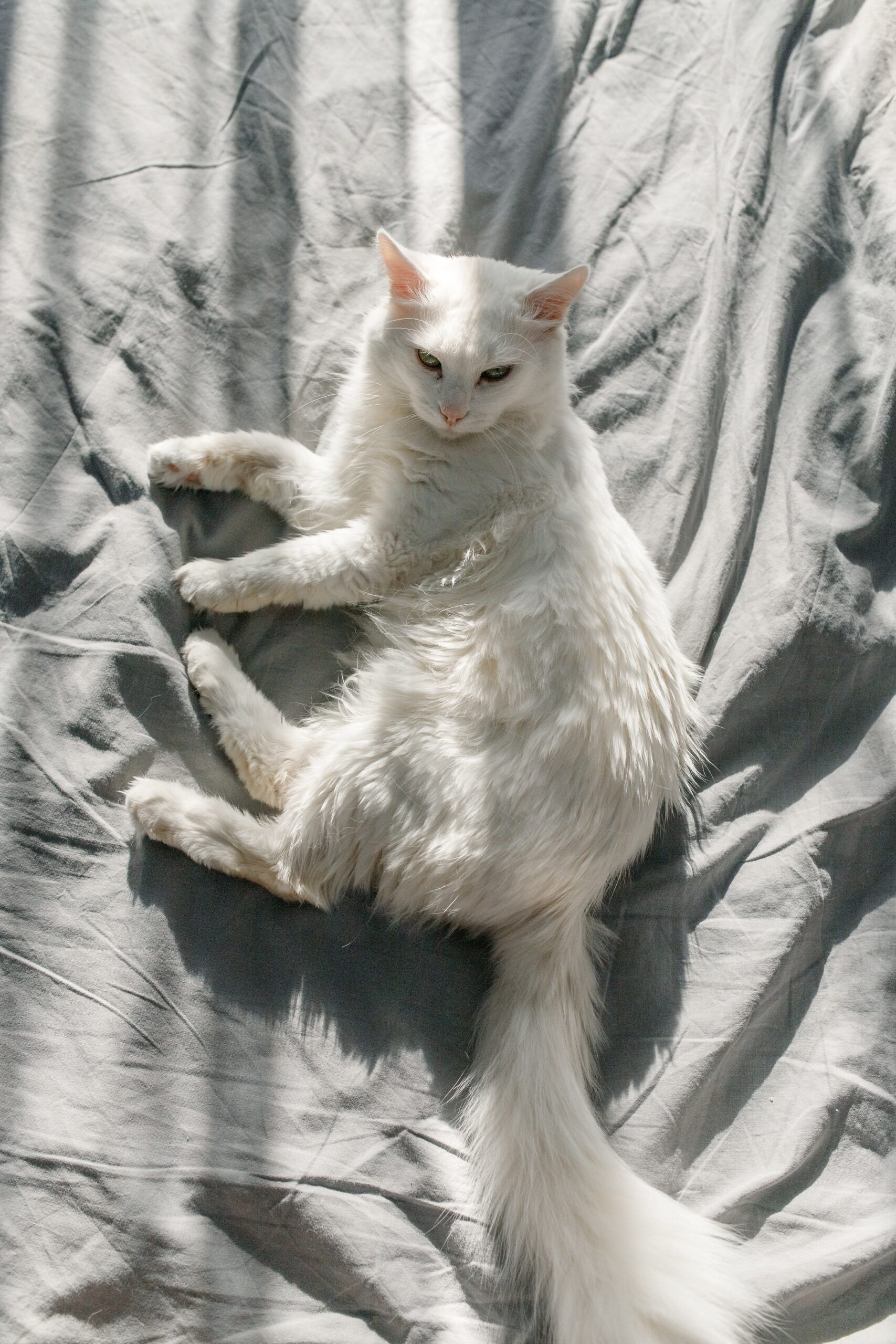Wondering what is one of the most outgoing and affectionate of all cat breeds, not only intelligent but extremely adaptable, loving, and playful cats? – Turkish Angora Cats is the answer.
Elegant, graceful, energetic, loving, playful, and highly adaptable Turkish Angoras are the perfect choice especially if you have a family with young children.

History
If you are interested in learning more about the history of Turkish Angora cats, you have come to the right place. It traces as far back as 16th-century France. There is even a legend that traces Turkish Angoras back to Mohammad – the founder of the Islamic faith, who adored cats, and once cut off his sleeve to avoid disrupting the tabby-patterned Turkish Angora sleeping in his arms. Since the earliest written reference dates back to the 16th century, its commonly accepted that Turkish Angoras began moving into Britain and France during the late 15th century.
By the 1700s, they were imported to America. In the early 1900s, the government of Turkey in cooperation with the Ankara Zoo began a breeding program with the purpose of protecting and preserving the pure white Angora cats with blue and amber eyes. This program continues today and although it stood up for not giving up any of its cats, two were gifted to Colonel and Mrs. Walter Grant. These cats became the foundation of the American Turkish angora breeding program. Over the years, more Americans brought Turkish angoras home and propagated the breed through the US.
Personality and Care of Turkish Angora Cats
One of the perks of having a Turkish Angora is that, despite their delicate, luxurious appearance, grooming is relatively simple. Brushing your cat’s coat once per week to remove debris and bathe will be enough because the Turkish Angoras have a single coat and they are less prone to tangles and matting. Although you might think the coat of Turkish Angora is solid white, it can come in colors such as tabby, tortoiseshell, calico, or other patterns.
Not every Turkish Angora loves water but they are natural swimmers. Therefore, bath time should not be as challenging as you’d imagine.
These cats are highly intelligent, and they also seem to flow with the grace of a ballerina. Turkish Angoras can have lovely manners. They for sure are beautiful and elegant on the surface, but they also have their active side and love to play and keep your attention. The Turks are a sociable breed, so if you are not at home most of the day they wouldn’t mind another cat or even dog to keep him company. Besides them being gentle cats, affectionate, and devoted to their family, a real challenge in living with Turkish Angora can be their precocious intelligence, resourcefulness, and desire for interaction and play.

Hygiene
To prevent periodontal disease daily dental hygiene is paramount, so try to take care of it at least weekly. Nails should be trimmed every couple of weeks.
The almond-shaped eyes are one of the main characteristics of the Turkish Angora. They can be blue, green, gold, amber, or odd-eyed. Don’t forget to wipe them with a soft cloth, but just the corners of the eyes, to remove any discharge. In order to avoid any chance of spreading infection, you should use a separate area of the cloth for each eye.
Regularly check their ears for debris, dirt, or signs of infection on a weekly basis. In case they are dirty, make sure you avoid using ear swabs to prevent damaging the delicate, inner-ear structure, and use a soft, cotton cloth.
Health
Although the Turkish Angora is healthy in general, some types of Angora cats like the solid white ones with blue eyes can experience deafness. Ataxia and hypertrophic cardiomyopathy are the two other common feline health issues seen in Turkish Angoras. Ataxia is a fatal neuromuscular disorder that affects kittens aged two to four weeks, while Hypertrophic cardiomyopathy is a type of heart disease characterized by the enlargement of the heart muscle.
It’s always a good thing to consult your veterinarian about steps you can take to guarantee a long, happy, healthy life for your Turkish Angora cat.
Final Thoughts
It is highly recommended that you keep your Turkish Angora cat indoors at all times not just to protect them from spreading diseases, but also from being attacked by dogs, or even worse being hit by cars. Keep in mind that as they are very beautiful cats they can easily be a target of thieves. So, better keep your Turkish Angora cat safe and close to you in your home.
